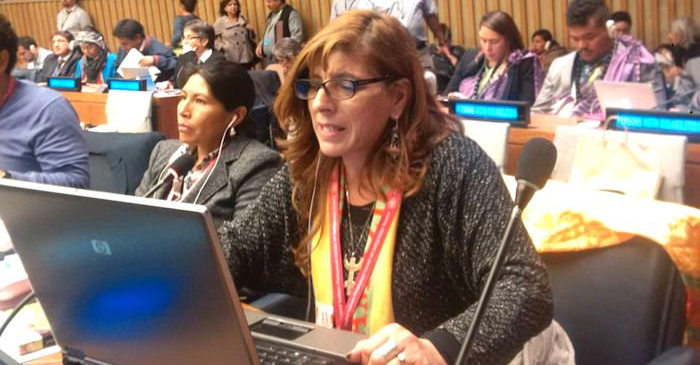
IWGIA has learned that Indigenous Peoples human rights defender Kamira Nait Sid remains in pre-trial detention in Koléa prison near Algiers and has not yet been brought before a judge, which is against the law.
According to Algerian law, after four months of pre-trial detention, she must be brought before a judge who must decide whether she should be tried, have her pre-trial detention extended for another four months, or be released. Kamira should therefore have been presented to the Judge of Sidi M’hamed in Algiers on 23 December 2021 since she was arrested and imprisoned on 24 August 2021. However, after nearly five months in pre-trial detention, no date has been set for her court appearance. Further, Kamira’s lawyers have not been able to push for a court appearance because they are themselves under threat, IWGIA sources have said.
Prison officials continue to not respect Kamira’s vegetarian diet and she has been ill for several weeks, suffering from various pains that are going untreated.
The above is an update on Kamira’s situation to the article below that was originally published on 8 December 2021.
According to IWGIA sources, Indigenous Peoples human rights defender Kamira Nait Sid remains in detention without a trial date and there have been no new legal developments in her case.
In its most recent session, held from 15 November to 5 December, the African Commission on Human and Peoples’ Rights (ACHPR) reported that it sent a joint letter of appeal in September to the Algerian government on the human rights situation of the Amazigh Peoples. The letter raised multiple concerns regarding the human rights issues in Algeria, including Kamira’s case. In Chapter V, paragraph 22 of the Intersession Activity Report of The Working Group on Indigenous Populations/Communities and Minorities in Africa the ACHPR emphasized that if the allegations against authorities are correct, then the government would be in violation of the following nine African Charter on Human and Peoples’ Rights articles:
- Article 4 on the right to life;
- Article 6 on the right to personal liberty and protection from arbitrary arrest;
- Article 7 on the right to fair trial;
- Article 9 on the right to receive information and free expression;
- Article 10 on the right to freedom of association;
- Article 14, on the right to property;
- Article 16 on the right to health;
- Article 19 on the right of all peoples to equality and rights; and
- Article 20 on the right to self-determination.
In the letter the ACHPR urges the Government of Algeria to provide clarification regarding the allegations, conduct prompt and impartial investigations into the allegations without delay, and ensure a fair trial to those being detained without trial. It also urges the government to comply with the letter and spirit of the African Charter, including General Comment No. 3 on the Right to Life, as well as other relevant human rights instruments to which Algeria is a party.
Kamira, an Indigenous Amazigh woman and co-president of the Amazigh World Congress, was abducted on 24 August 2021 in northern Algeria by unidentified men for several days before friends, family, colleagues and her lawyers received confirmation that she was in police custody. She is now indefinitely in pre-trial detention in Kolea Prison awaiting a court date.
At the moment, prison administration is refusing to provide her medication for her osteoarthritis and will not allow her to receive or wear clothes from the outside. Further, prison officials are not respecting her vegetarian diet.
Kamira, over the years, has been the victim of harassment by authorities, arrested and detained on several occasions for short periods and is often searched and interrogated when traveling abroad from the airport in Algiers.
